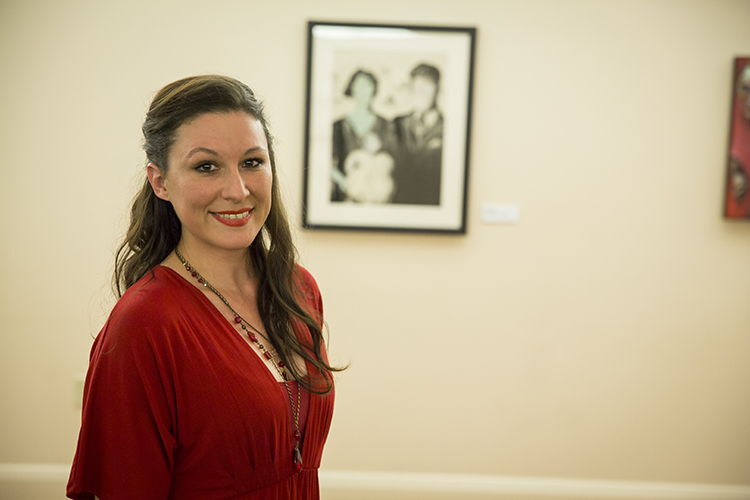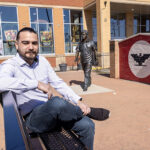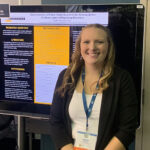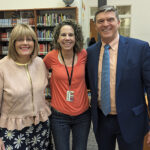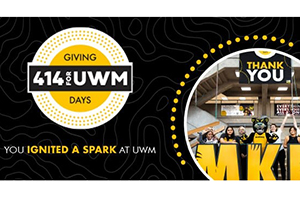Nicole Lesser’s educational journey epitomizes the quote, “Life is what happens to you while you’re making other plans.”
Lesser, now in her mid-30s and a senior in the School of Education’s educational policy and community studies program, started out at UWM planning to become a teacher.
During her junior year, she left school when she became pregnant with her daughter, now a freshman in high school. Her daughter arrived early, and then Lesser was broadsided by an autoimmune disease that led to two years of chemotherapy.
“I was just 22, and it was rough. Life gets away from you sometimes,” Lesser said.
Her son, now starting second grade, was born. She and her husband divorced, and she began a series of jobs with local nonprofits. All of that eventually inspired her to return to UWM two summers ago, but with a different area of education in mind.
“When I was in the nonprofits teaching and running programs, I started to see a lot of need for programming to have a little bit more integrity,” Lesser said. “I was seeing a lot of people running programs or running organizations who had no real connection with the people they were serving.”
When she was at UWM earlier, the community engagement and education degree program didn’t exist, but when she returned she found it fit her plans.
Now she plans to graduate in in December 2017 and apply for graduate school. If accepted, she would like to double major in urban planning and public administration.
“I feel that the more I learn about other aspects of community and city planning, the more effective work and research I can do in the future,” Lesser said. “My heart will always be with the cause of education, but I feel the best way to make the biggest impact, and hopefully protect public education, is to take this path.”
She had to go through two more surgeries last summer, and sometimes taking care of her children and going to school consumes a great deal of her time.
“I still pull all-nighters. It’s whenever I can get the work in. If it’s at 3 a.m., that’s when I do it.”
Earning and keeping a number of scholarships and grants, along with a part-time job, has helped her focus on academics. Her ex-husband has also been supportive. “He’s a great dad. We just weren’t meant to be married,” she says.
Her children have adapted to her scholarly life, sitting down with her to do homework and encouraging her to go to an awards ceremony for outstanding nontraditional students last November. Her son sometimes joins her on campus or enjoys the bowling alley or library while she studies.
She likes being at UWM because it’s so diverse and so intertwined with the city. “There’s so much work to be done with our schools and our communities that this is the perfect place to do fieldwork and to study.”
Her own maturity enables her to view her readings with a different attitude.
“I like having experience to bring to the table in class discussions. Having been a mother, someone who’s worked in nonprofits and had struggles in life, I don’t approach my readings with a 19-year-old brain.” And, she adds, “The staff here makes you feel valued.”
Lesser says she’s always worrying about keeping her grades up and keeping on top of her homework, but is also amazed at how far she’s come.
“I kind of thought I’d never be back, having this conversation. If you would have told me 10 years ago this is where I’d be, I would have said, ‘no way.’”
